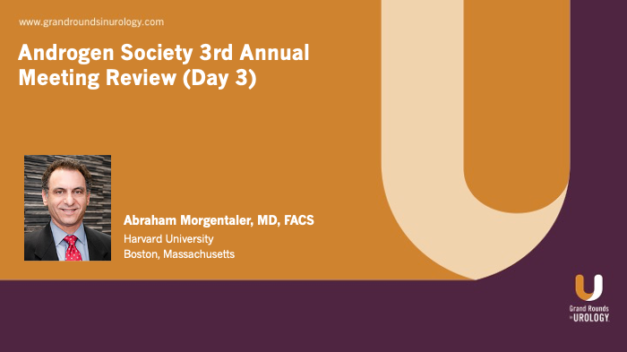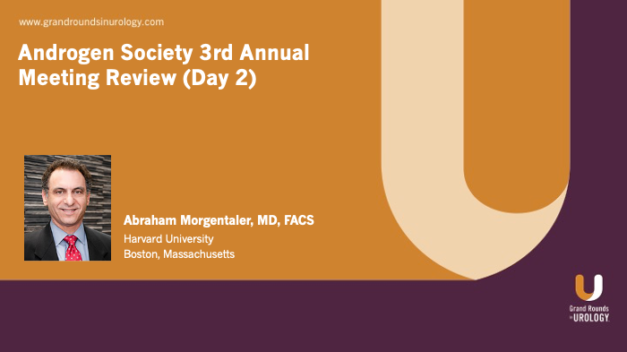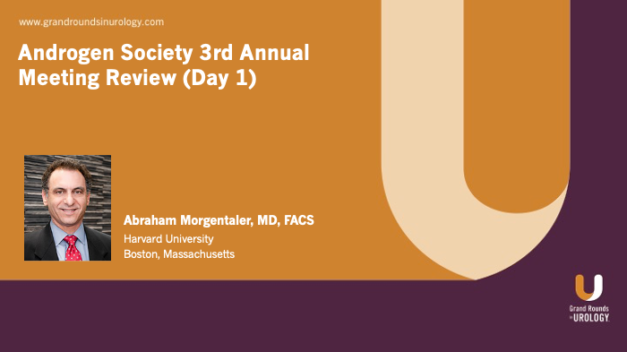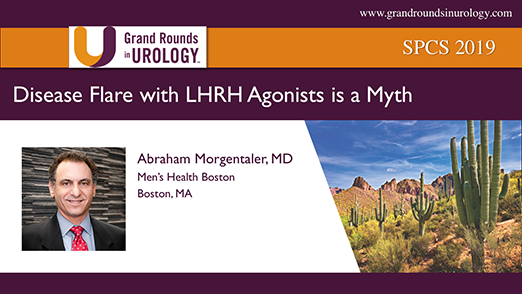Testosterone Therapy in Men with Biochemical Recurrence and Metastatic Prostate Cancer
Abraham Morgentaler, MD, FACS, Associate Clinical Professor of Urologic Surgery at Harvard University, summarizes results from a recent study on testosterone (T) therapy for patients with biochemical recurrence and metastatic prostate cancer. He provides some background, explaining that physicians have been taught that raising testosterone in a man with prostate cancer is like “pouring gasoline on a fire,” even though approximately 20 years of evidence suggests that T therapy is safe after radical prostatectomy, after radiation therapy, in patients with prostatic intraepithelial neoplasia, and in patients on active surveillance. Dr. Morgentaler notes that his and his colleagues’ research indicates that T therapy is also safe for patients with advanced disease. He then goes over the makeup and design of the observational study, which featured 22 symptomatic men of a median age of 70.5. The median duration of T therapy was 12 months, and all patients reported symptomatic benefit from the treatment. The overall mortality was 13.6% with only one prostate cancer-specific death, and morbidity was fairly low, with no cases of pulmonary embolism, spinal cord compression or pathological fractures, and no observed rapid or precipitous progression of disease. Dr. Morgentaler highlights one 94-year-old patient’s experience, describing how this man wanted to be on testosterone because androgen deprivation made him too tired to do the things he enjoyed. After 6 weeks of T therapy, this patient’s brain was clearer, his appetite had improved, and he was exercising daily, and even though he died at age 95 after 11 months of therapy, Dr. Morgentaler emphasizes the importance of T therapy’s benefit to his quality of life in his final months. He concludes that there are men who prioritize quality of life over duration, that data contradict the idea that T therapy is dangerous for patients with prostate cancer, and that T therapy might in fact be a reasonable option for selected men with metastatic disease who refuse androgen deprivation.
Read More



